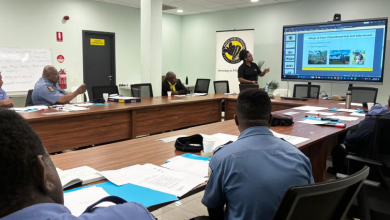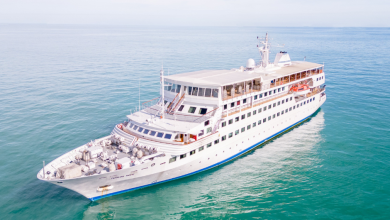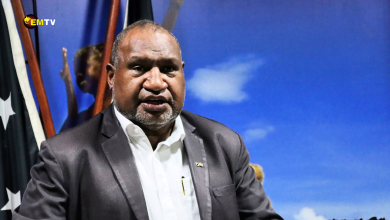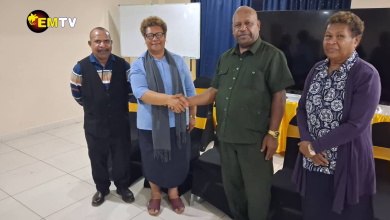News
Special Report On Rabaul District
Tonight on EMTV News Special Report, we look at how working in union produces a positive outcome, despite the negative situation.
The late releasing of District Support Improvement Program Funds has delayed the implementation and the delivering of services in one district.
Rabaul District has fallen one year behind its service delivery schedule after it received only three million kina from the ten million kina DSIP Funds that was supposed to be released last year.
But this has not stopped the Rabaul District Administration from putting together an annual working plan.
According to local MP, Allan Marat, the 2013 Annual Working Plan and Five Year Rolling Plan were recently reviewed, and already services are reaching his people.
EMTV reporter Theckla Gunga visited some of the project commissioning’s in his district. It’s about working with what you have.
These are the words of the local MP when describing how the K3 million from the 2013 Budget has delayed service delivery in his electorate.
Since last Monday, MP Allan Marat and his district officers have been visiting each LLG to commission the different projects funded under the DSIP or LLGDSIP funds made available by the national government.
From road infrastructures to double elementary classrooms and cocoa fermenters to fishing markets, each LLG witnessed the commissioning of these projects or facilities almost simultaneously.
The district is using the K5 million from the 2014 Government Budget, and K6 million from the outstanding K7million from 2013, to fund these facilities.
On top of that, K6 million is yet to be released to the district by national government, where K1 million is still outstanding from the 2013 Budget.
At the government station on Wotom Island, an 84 metre sea wall was constructed to protect government properties against the increase in sea levels.
The project is part of a trial co-funding arrangement that aims to achieve an economics of scale, or using less money to build more projects.
In this agreement, the following funds were allocated from three different sources;
K150, 000 from the LLGDSIP funds, K250, 000 from the Provincial Improvement Program and K300, 000 from the District Support Improvement Program Funds, Totalling up to K700, 000.
From this money, a double elementary classroom at Vunaulaiar (VU-NAU-LAI-AR) village on Watom was constructed.
A cocoa fermenter and copra drier were also commissioned to encourage local growers to produce quality cash crops.
This sea wall had commenced construction towards the end of last year, and was built by two local constructors from the island.
It is estimated to protect the government station from the next 50 years. It will act as a protection measure to minimize the damage that is likely to be caused by increase in sea levels in the coming years.
The completion of this project gives Wotom Island the title of being the first in the New Guinea Islands region, if not in the nation, to build a stone wall at a village level. The sea wall will save the LLG maintenance costs.
Just ten metres away from the sea wall, the LLG has built a fish market for local fishermen to sell their fish. The island has 17 fishing groups and the establishment of the fish market will save fishermen from taking their catch all the way to Rabaul mainland to sell.
But with so much service delivery dished out to the people at the same time, the people have been challenged to take care of these facilities and continue to work in union with their LLG leaders.
Back to top button
These investments into the rural community are the result of a steady partnership between the East New Britain Provincial government, the Local Level government and Rabaul District.
This is the third week of project commissioning and more classrooms, road infrastructures and water supply projects are yet to be commissioned. The commissioning of all the projects is expected to end on August 17.






